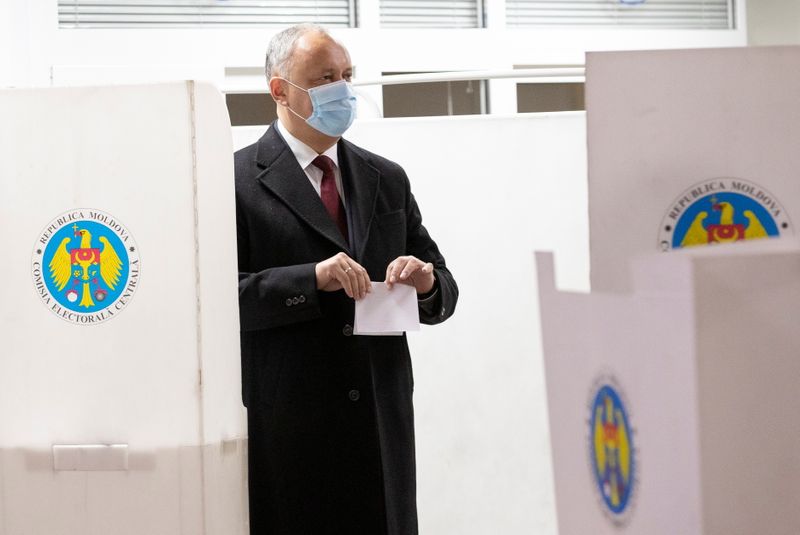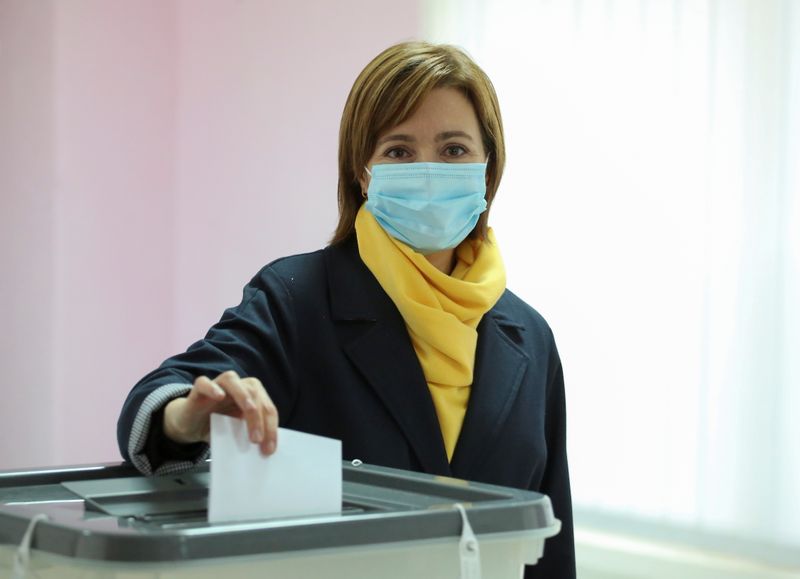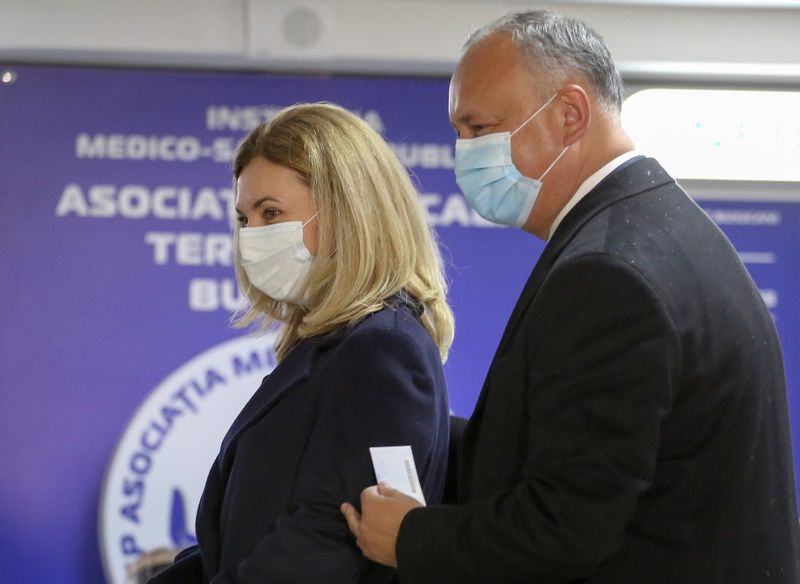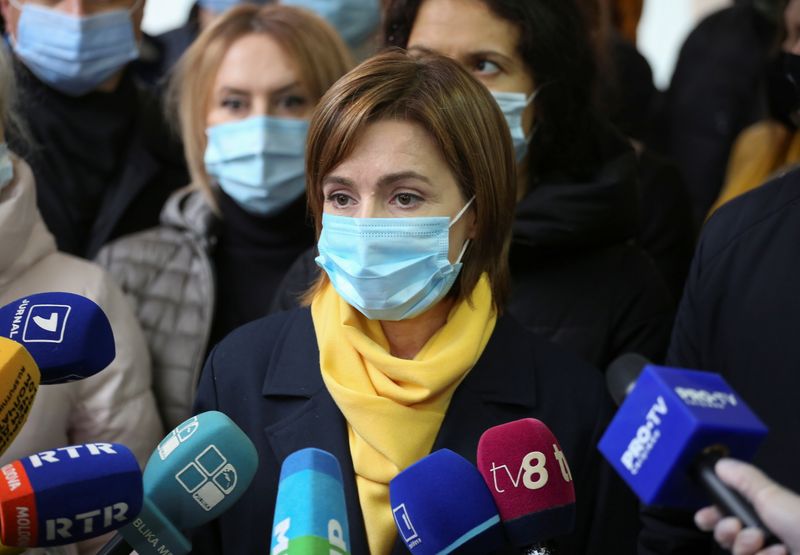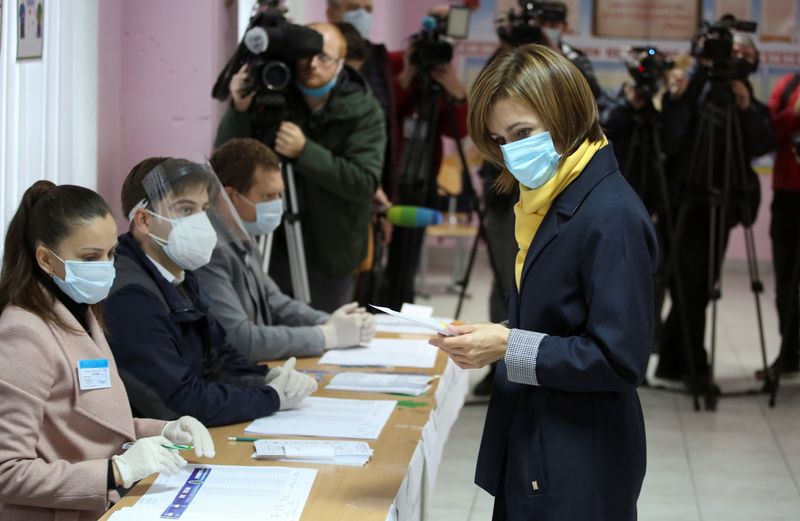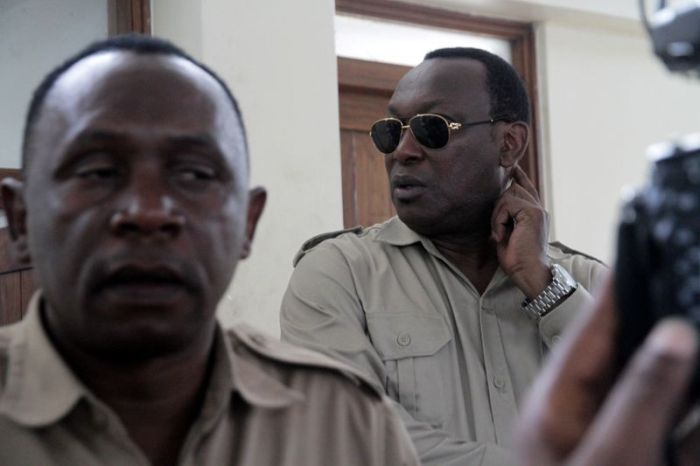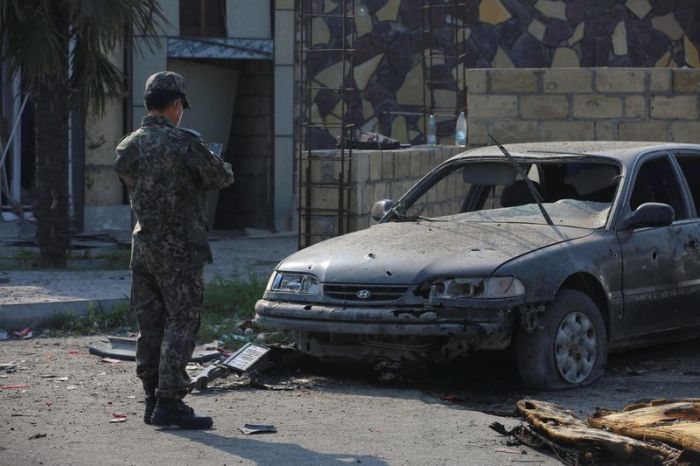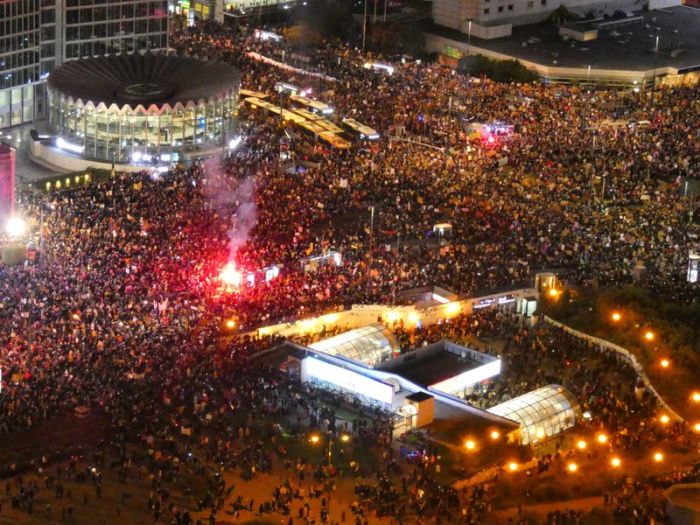CHISINAU (Reuters) – A late surge from Moldova’s diaspora voters gave the pro-Western challenger Maia Sandu the lead in the first round of Sunday’s presidential election, setting the stage for a run-off against pro-Moscow incumbent Igor Dodon in the second round.
Sandu, a Harvard-educated former World Bank economist known for her tough stance on corruption, led with 36.1% while Dodon had 32.66%, according to data from the election commission with 99.81%% of votes counted.
A candidate needs over 50% of the vote to avoid the Nov. 15 runoff, which would be a repeat of the 2016 election, when Dodon defeated Sandu in the second round.
The election in the nation of 3.5 million, where the West and Russia vie for influence, took place in the shadow of the coronavirus pandemic that has pushed one of Europe’s poorest countries into a sharp economic downturn.
“This is an extraordinary mobilization. Thank you,” Sandu said about diaspora voters.
Dodon had taken power four years ago after pro-Western political forces became mired in scandals.
Sandu led a coalition government last year that was brought down within months by a no-confidence vote.
If elected, she has promised to secure more financial support from Brussels, while Dodon has pledged to roll out a settlement next year for the breakaway Russian-speaking region of Transdniestria.
The European Union forged a deal in 2014 on closer trade and political ties with the ex-Soviet republic, which is squeezed between EU member Romania and Ukraine, but became increasingly critical of Chisinau’s track record on reforms.
Sandu has received messages of support from German Defence Minister Annegret Kramp-Karrenbauer, a close ally of Chancellor Angela Merkel, and former European Council President Donald Tusk.
A group of Dodon’s supporters denounced such support as an attempt to destabilise the country.
Sergei Naryshkin, the head of Russia’s SVR Foreign Intelligence Service, accused the United States last week of plotting to instigate mass protests against Dodon as punishment for him fostering good relations with Moscow.
Naryshkin similarly accused Washington of fomenting revolution in Belarus, where Moscow-backed President Alexander Lukashenko has battled months of protests following a contested election.
(Reporting by Alexander Tanas; Additional reporting by Pavel Polityuk in Kyiv; Writing by Matthias Williams; Editing by Michael Perry, Peter Cooney & Shri Navaratnam)

